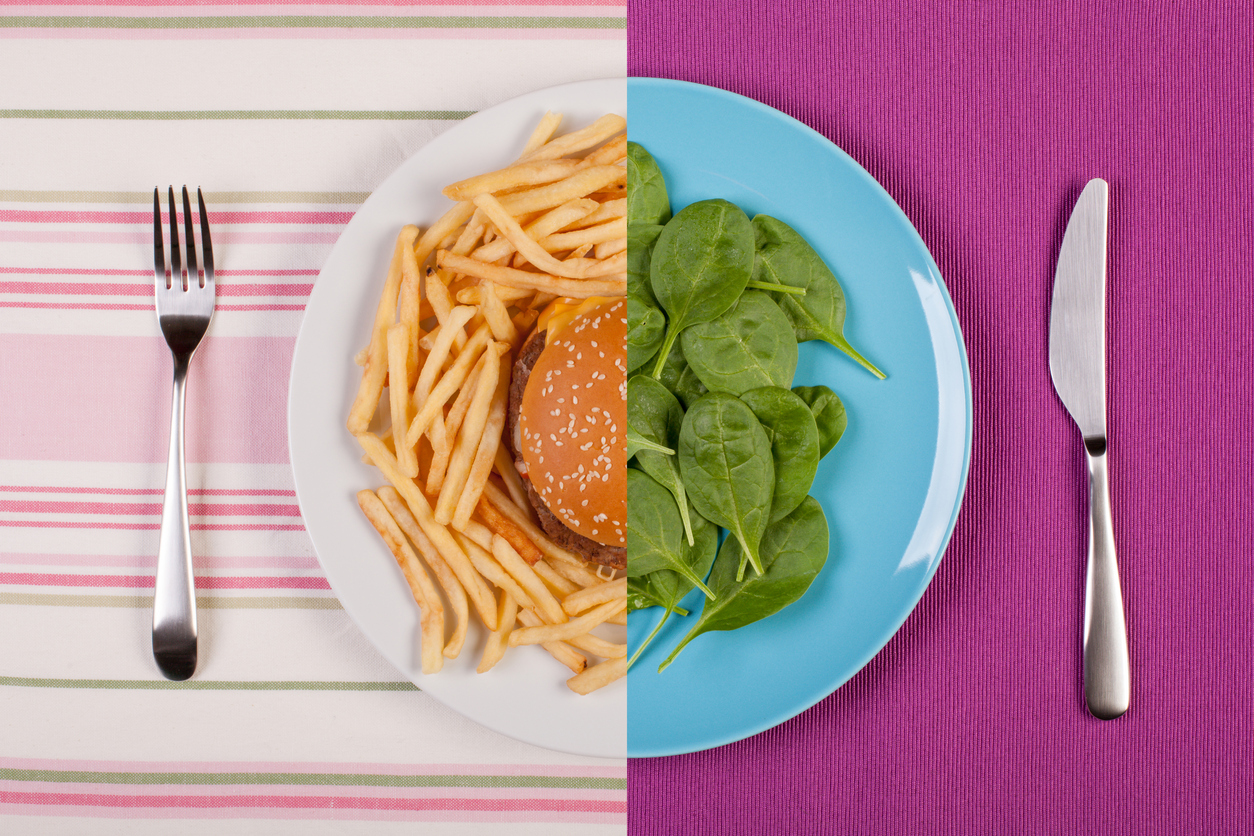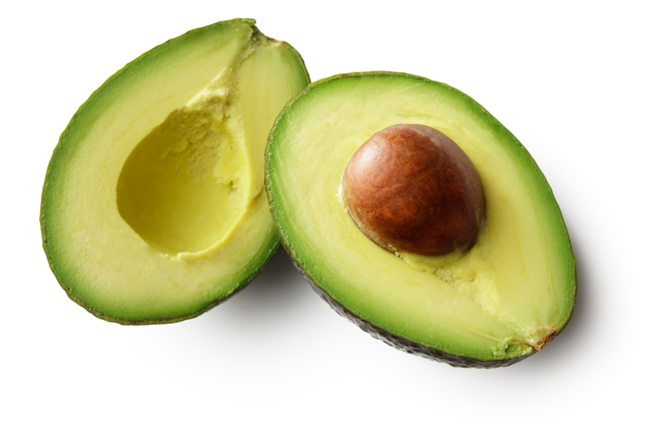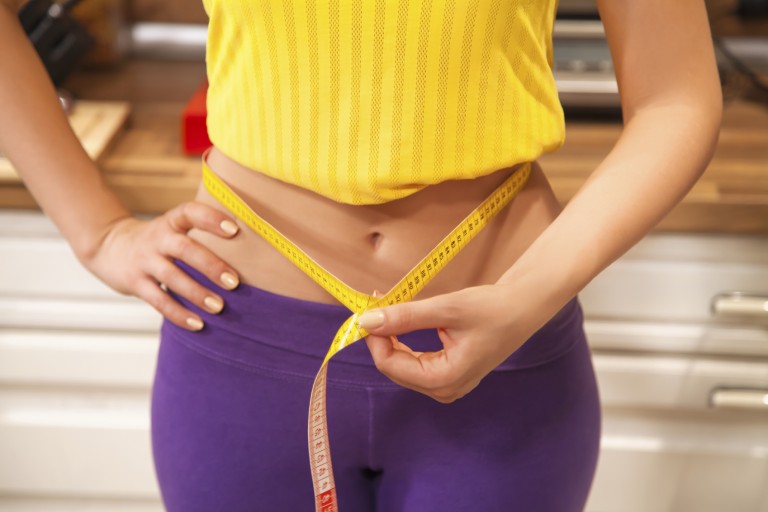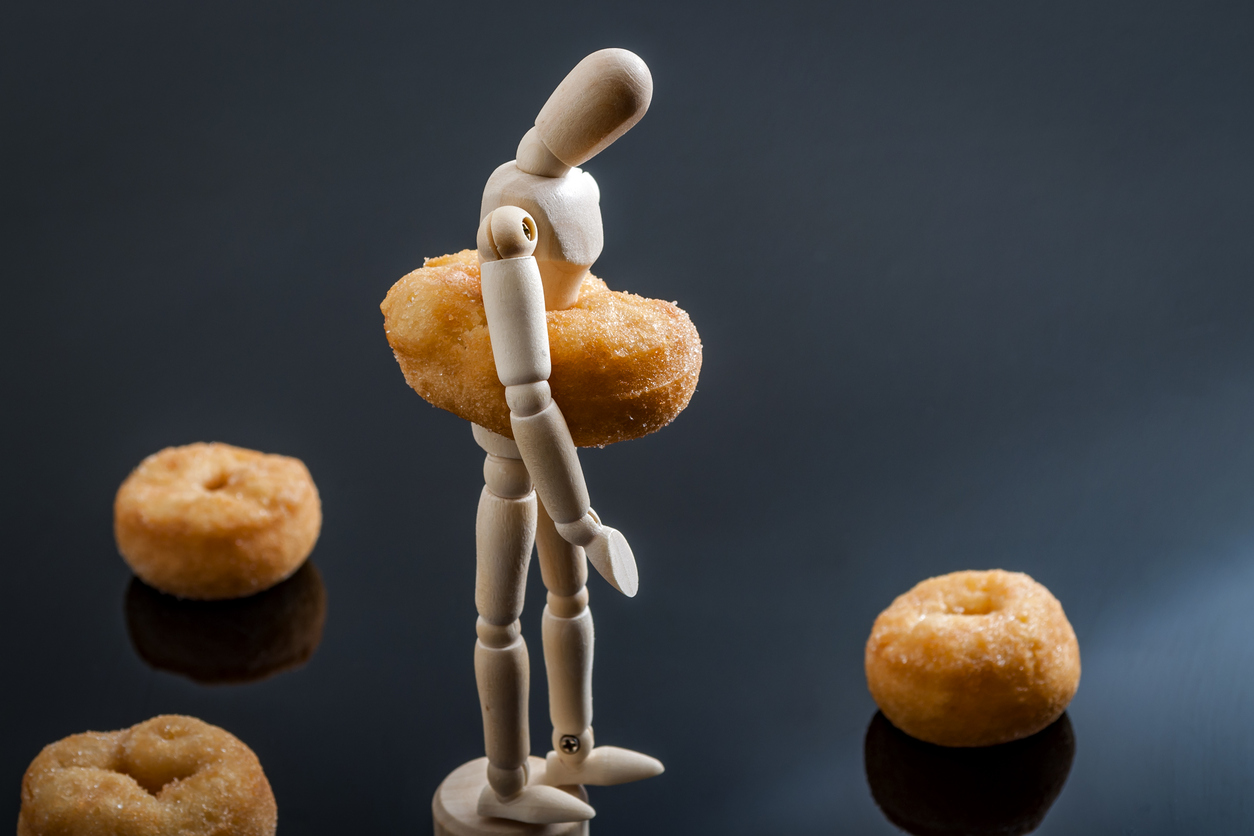As we look for the ideal ‘beach body’, Michelle Kickham dispels a few myths about what we can and can’t eat to reach our target weight…

As most of us know by now, the media is powerful. However, with this power comes a great responsibility to supply the public with the full facts rather than concentrating just on what will sell – something that many media sources are not taking seriously.
Considering the time of year it’s understandable why the topic of ‘fattening foods’ is yet again rearing its ugly head, and it’s all too easy to be bought over by the misinformation
and ‘fake facts’.
It’s important to consider what property must a specific type of food have to be considered ‘fattening’? Is it foods that are high in sugar, fat or carbohydrates? Well, I did a quick survey before writing this article to find out what people thought about ‘fattening foods’ and the general consensus was…
Common perceptions
- Eating food that contains fat will make you gain fat.
- Sugary foods, cakes, fast food and so called ‘unhealthy foods’ result in fat gain.
- Carbohydrates, gluten and wheat promote fat gain.
I’ll begin by stating straight off the bat that none of this is true in and of itself. Naturally, these foods can cause you to gain fat if you eat enough of them, but they won’t cause fat gain just by including them in your diet! However, I believe that in order for you to believe me, you’ll want a more detailed explanation. Yes, we’re going to get science-y on this one. Don’t worry; there are no calculations (I was never too fond of maths, anyway).

How do you actually gain fat?
Before we talk about calories and gaining fat, let’s briefly explain what keeps our bodies ticking over every day. Your body requires energy to perform its daily tasks such as breathing, walking, talking and even concentrating. The more work you do, the more energy (calories) your body requires. This is referred to as the ‘energy balance’ and basically means you need to provide your body with the same amount of calories that you burn in order to just maintain your weight.
This energy (aka. calories) is obtained from the food we eat and is used to provide the energy for all the work the body carries out. Calories are to your body as petrol is to a car. If you don’t give it the fuel that it needs – it just won’t move!
The first law of thermodynamics states that ‘energy can neither be created nor destroyed’ – and this holds true for your body’s energy, too! If you consume more calories than your body needs, the energy contained within it must go somewhere! Simply put, if we consume more calories than we burn, we store the excess energy as either fat or muscle. The first law of thermodynamics has been obeyed.

You are not what you eat
Calories in versus calories out; this is what dictates fat gain. Not by eating fat, sugar or the media’s new favourite enemy: gluten. Gluten doesn’t promote fat gain any more than rice or any other grain (gluten-free or not). The issue with gluten is that it’s usually found in foods higher in calories such as cakes, biscuits and easily overconsumed food items. Remember, it’s calories that cause fat gain, not the food itself! Eating protein-rich foods won’t put pure protein into your body (someone please tell the Bro’s at the gym this fact) and the same rule applies for fat. The human body is far more complex than that.
Why do we blame the doughnuts then?
Certain foods or food groups are mistakenly labelled as so called ‘fattening foods’ not because they have this magical ability to add some more to those love handles, but because they are so easy to consume in high quantities. Needless to say, higher quantities of food equals higher calories and we know now that it’s calories that cause fat gain – not the delicious tub of ice cream. It’s just a hell of a lot easier to eat 2000 calories worth of cookie dough ice cream than it is to eat 2000 calories worth of spinach. That’s a lot of spinach, even for Popeye.

Do any foods promote fat gain, or prevent it?
There are studies showing that those that consume high quantities of sugar are more likely to store excess calories as fat as opposed to lean muscle tissue, although this may be due to underlying issues such as diabetes and other metabolic disorders, not the sugar itself. As for ‘fat-burning foods’, don’t believe the hype; because that’s all it is. I hate to be the bearer of bad news, but there isn’t a green tea in the world that will shed the pounds and ‘boost your metabolism’. This is a myth that the media and unfortunately many businesses have exploited, costing you not only your time but also your money (£50 for a box of ‘slimming tea’ – are you kidding me?!)
Fact file
- Calories count! – If you define ‘fattening foods’ as those that cause weight gain, any food can be fattening! 2 bananas contain more calories than a large chocolate bar so by that definition, is a banana fattening?
- Fat gain cannot be attributed to a particular food. An excess of calories in the diet encourages weight gain; not the food group itself.
- No food groups ‘promote’ fat gain or prevent it. Trust me, if there actually was a fat burning food we would all be runway models by now.
Take home message
If every food was classified as ‘fattening’ based purely on its ability to cause you to gain weight, then technically anything can be ‘fattening’. A tablespoon of oil contains 135 calories and two bananas contains 200 calories. Does this mean that a banana is fattening? Think about this. It’s important because once you understand how your body actually gains fat you’ll find that you’ll never have to ‘diet’ again. Remember, it’s all about those calories, not the food from which they came from.
So yes, you can have your cake and eat it too…
About the author
 Michelle Kickham is a doctoral candidate in Immunology and Organic Chemistry and a current Irish Research Council scholar. Michelle believes that science holds the power to make a real difference and her goal is to explain the science behind health claims, offer advice and tips, as well as sharing healthy recipes to suit almost any diet.
Michelle Kickham is a doctoral candidate in Immunology and Organic Chemistry and a current Irish Research Council scholar. Michelle believes that science holds the power to make a real difference and her goal is to explain the science behind health claims, offer advice and tips, as well as sharing healthy recipes to suit almost any diet.
For more information, visit www.lifeliftsandlabcoats.wordpress.com
